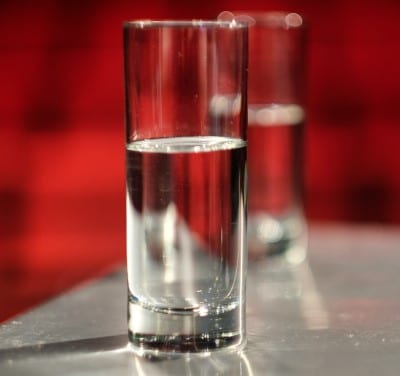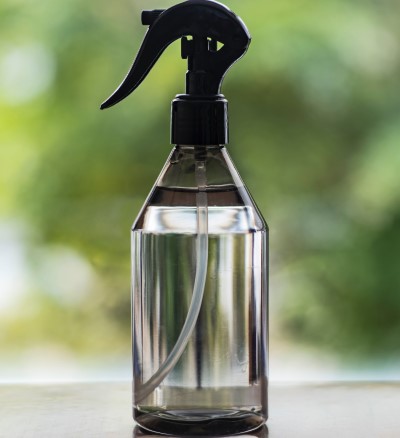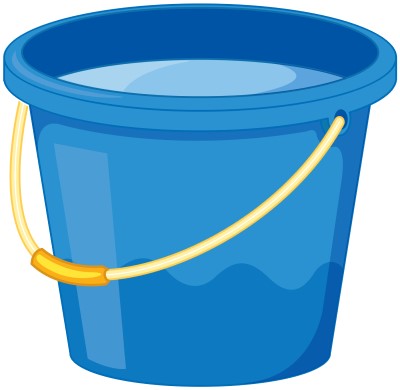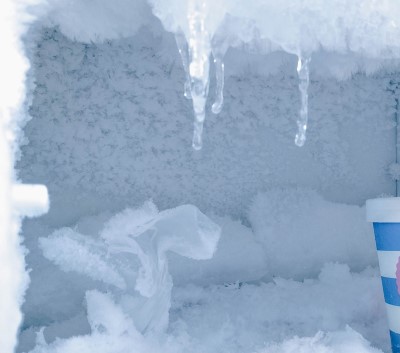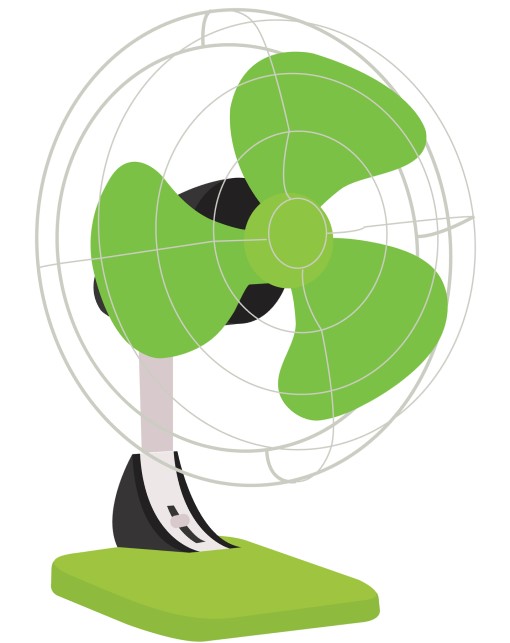
Does putting ice in front of a fan really work? – I put it to the test
By Jason Wooden, PhD | Last updated: May 30, 2025
On a hot day, I did a simple experiment to test whether ice in front of fan could provide cooling relief. I share how the right setup could create air 10°F cooler and some things to think about before giving this a try. I also tried out a personal cooling fan and list other cooling remedies worth trying.
Why we’re curious whether putting ice in front of a fan works
Desperate times call for desperate measures…
Nothing is worse than being uncomfortably hot and nothing you do seems to cool you down. Whether it’s a blistering hot summer day or a warm night during a heatwave, we’ve all been there.
Too hot to get anything done by day and too hot to sleep at night.
So, I get why people are curious whether putting ice in front of a fan actually works.
Maybe you’re strapped for cash or can’t get your hands on an AC unit because they’ve sold out…
Or maybe you live in an area where AC is not usually needed…
Regardless, it’s all the same – miserable days and miserable nights.
Yes, it would be great if you had air conditioning but what if all you have is a household fan and it’s not getting the job done?
Out of desperation, you’re willing to try anything to cool down including something as crazy as putting ice in front of a fan.
Will it really do anything?
Is it worth the time?
I was curious myself so I put it to the test.
The science behind using a fan with ice for cooling
Okay, the basic idea is pretty simple – ice absorbs heat as it melts.
If you blow warm air across ice with a fan, the air will be cooled as the ice melts. So, warm air goes in and out the other end you get cool air.
That’s how things should work in theory. However, there are of course some obvious limitations to keep in mind.
First, the warmer the room is, the less cooling you’ll get and the more quickly the ice will melt. Secondly, the bigger the room you’re in the less cooling you’ll get for that space.
That means you’ll get less cooling in a big room on a very hot day.
And it also won’t last as long as it would in a smaller space that isn’t as hot.
My simple cooling test with a house fan and ice
To test whether putting ice in front of a fan works, there are lots of different ways I could do it.
Basically, what you want is to move warm air so it comes into contact with something cold.
You could use ice in various forms, a bottle with frozen water, or cold packs.
For simplicity, I decided to give ice cubes and a solid block of ice a try.
If you’re wondering why, it’s because with ice cubes you get lots of surface area and spaces for the air to flow across.
With a solid block of ice, I could see how well things work with something that has less surface area but will take longer to melt.
So, my basic set up was:
- a household fan
- ice cubes in a basket or block ice in a pan
On a hot day, I bought a 10 pound bag of ice and a block of ice.
First, I tried setting it up with a smaller fan:
I started with a desktop fan I thought would do the job. I checked for air flow using a piece of bath tissue and quickly realized it was too wimpy even at the highest speed setting.
It wouldn’t be strong enough to move air through my setup. I needed to go bigger.
More power, more air flow.
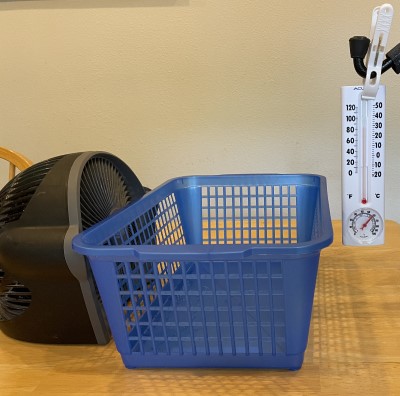
So, I tried a bigger and more powerful fan:
It passed the air flow check, so I went ahead and added the ice. The cool air it created was about 10 degrees Fahrenheit cooler than the room!
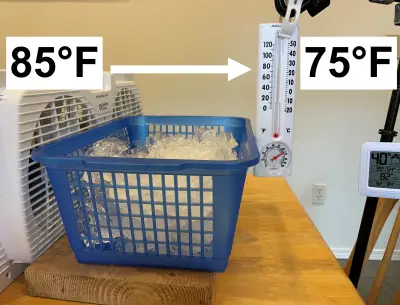
However, the air wasn’t as cold farther away from the ice.
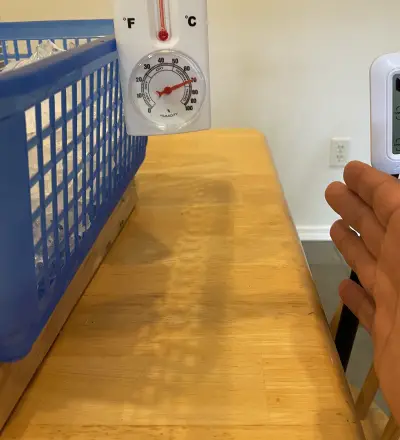
The other thing is that the ice melted pretty quickly. More than half the ice was gone within 15 minutes!
I also had to add a pan to collect the water.
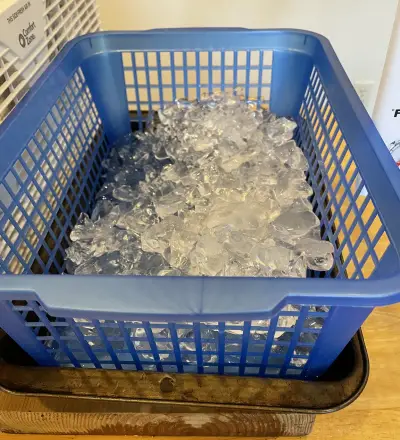
Next, I tried it with a big block of ice:
While it didn’t melt as quickly as the ice cubes, the air was only about a degree or two cooler than the room.
That wasn’t too surprising since there’s less ice surface area for the air to run across.
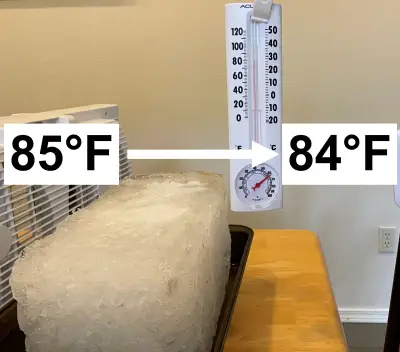
The Verdict: Does ice in front of a fan really work?
I think you can see from my simple test that I was able to create a nice stream of cool air.
I got the best results with a more powerful fan and ice cubes.
However, it only works so well because:
- the ice cubes melts pretty fast
- if it’s really hot, it will melt even faster
- you need lots of ice on hand to keep if going
- it wouldn’t be able to cool a room
It can give you some relief as long as you keep it close to you. For me, I think this might work as a desperation measure if I used it at my desk or on the night stand next to the bed.
So, yes, putting ice in front of a fan can give you some cool air, but not for long. I suppose if I had a bigger fan and unlimited ice it might do more, but then you run into other issues.
You can decide whether it’s worth your time.
If you seriously want to give this a try, make sure you:
- keep in mind it’s a short-term remedy
- use it for personal cooling, not a room
- have plenty of ice on hand
- use a strong enough fan
Meanwhile, let’s look at what else you can do on the cheap to stay cool.
I decided to give water in front of a fan a try…
Here’s a simple a twist on the ice in front of a fan idea.
It actually goes back as far as the ancient Egyptians who would have slaves fan water-filled pots to cool the royals. Similar to the cooling breeze you can get off of a lake, the way it works is that hot dry air cools off as it passes over water.
This is the idea behind modern day evaporative coolers.
I decided to see what would happen if a placed a roasting pan of water in front of a regular size house fan.

While it was nowhere as cool as putting ice in front of a fan, the air did feel a BIT cooler and was pleasant.
Nothing to knock your socks off, but definitely worth a try. Plus, it’s easier to setup and maintain than ice.
I’m currently using it for personal cooling in a small room. If you decide to give this a try, keep in mind evaporative cooling doesn’t work as well in high humidity.
I decided to give one of those evaporative cooling fans a try…
You’ve probably seen ads for those personal cooling fans with some even saying they’re “air conditioners”.
Most are evaporative coolers (also know as swamp coolers). Similar to the cool breeze you can get off a lake, they blow air across water saturated pads. The evaporation of water lowers the air temperature.
Since they rely on evaporation, it’s important to keep in mind these fans are most effective when the humidity is below 50%.
Reading through the reviews online you see a real mix with some saying it’s a total waste of money while others say it did the trick.
So, do they really work?
I decided to test if I could get some cool air from a personal cooling fan similar to putting ice in front of a fan.
Luckily, a family friend had one I could try out that they had given up on. (It was a major fail when they tried it at home and on a car trip.)

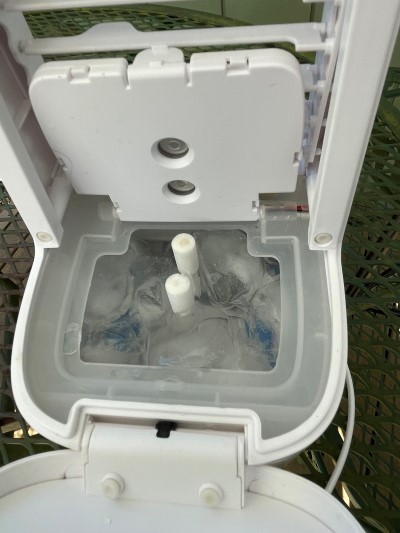
I set it up outside on a warm 92°F (33°C) day. After filling the chamber with ice and water, I turned it on to full blast to see what would happen.

Fairly quickly, it gave me a stream of cool air about 4 degrees cooler. The air wasn’t as cold farther away.
I decided to give it a try inside in my home office. When placed nearby on a desk, it did give me a pleasant stream of cool air.
The Verdict:
While not as good as a real air conditioner, these small evaporative coolers are definitely worth a try for PERSONAL cooling if placed NEARBY.
It is NOT going to cool a room or even a closet – just a cheap way to get a bit of cooling relief on a hot day.
And I found it to be more refreshing than a conventional small fan.
If you decide to give this a try, here are some personal cooling fans worth a try:
It can be hard to decide which brand to go with since there are so many to choose from.
The unit I originally tested is no longer available. However, below you’ll find a couple of options.
They’re all under $100. Otherwise you might as well go for a traditional AC unit.
A couple things to keep in mind:
- Despite what they may say in the listings, none of them are REAL air conditioners
- They work best when the humidity is low – don’t waste your money if you live in a high humidity area
Personal Air Cooler, Portable Evaporative Conditioner with 3 Speeds Touch Screen Cooling Fan
Brand: HAYI
Reservoir Capacity: 500ML water tank
Rechargeable: Yes
Output: 3 speed
Noise: 30dB
Likes: Portable low cost option, works on the same principle as the one I tested
Brand: MORFY
Reservoir Capacity: 600ML water tank
Rechargeable: No
Output: 3 speeds
Noise: 30dB
Likes:
– claims to reduce air outlet temperature by about 3-9℉
– washable air filter
Brand: Evapolar
Reservoir Capacity: 800ML water tank
Rechargeable: Yes
Output: 4 speeds
Noise: up to 50bB
Likes:
– can run unplugged on rechargeable battery, larger water tank
– cool breeze within 3 – 5 feet in the direction of airflow
– up to 8 hrs of cooling
– uses nano-thin extra porous structure in water chamber for more powerful effect
– claims to cool by 9 – 25F
While more expensive, this made the list in multiple reviews as a more powerful option.
Other tricks worth a try to stay cool when it’s hot
The good news is that putting ice in front of a fan isn’t the only trick that may help you cool down. Depending on your situation, there are plenty of things worth a try on hot days and nights that can help you stay cooler.
Some are easy to try and will give you a bit of short-term relief. Others will require an investment of time or money.

2) Avoid alcohol
Consuming alcohol on a hot day can come back to bite you in more than one way. First, it can dehydrate you. Secondly, alcohol increases blood flow to the skin which can make you feel warmer.
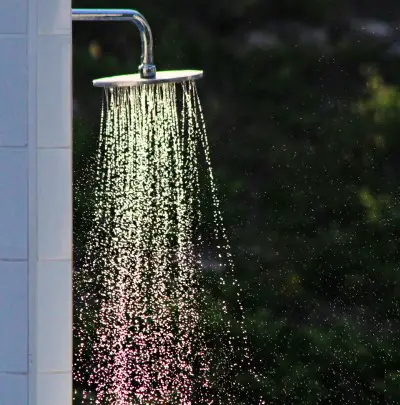
6) Take a cool shower
Another quick and time tested remedy.
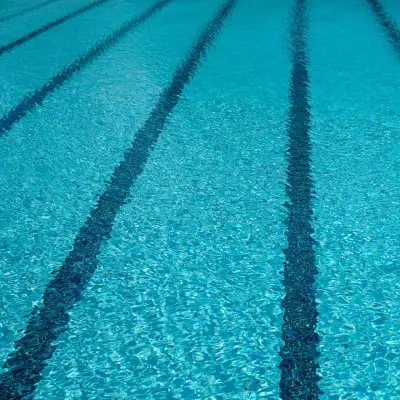
7) Take a quick swim
If you have access to a pool, a quick gentle dip can help cool you down and feel refreshing.
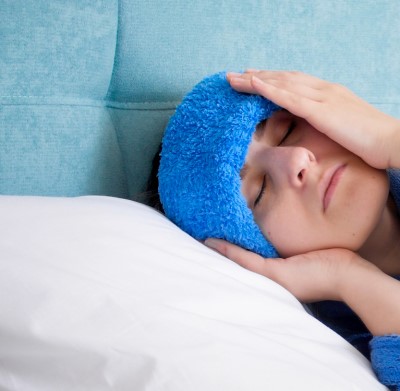
8) Try a cold compress
You can place it on your neck or forehead.
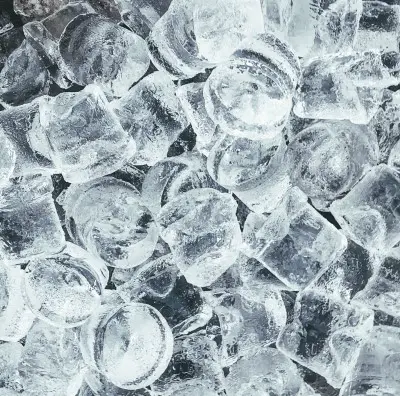
9) Try an ice pack
If you don’t have a store bought one, you can make your own ice pack with ice cubes in a Ziploc bag. You can also try a plastic bottle filled with frozen water.
Be careful how long you use it so you don’t get an ice burn or frostbite. To be safe, you can wrap it in a towel.
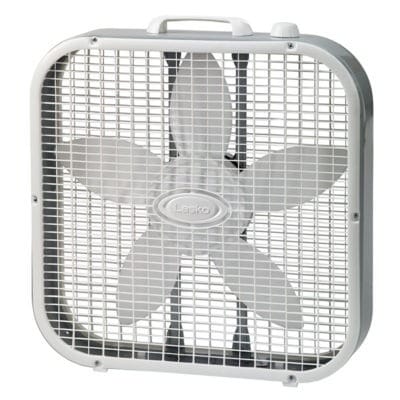
12) Double up on the fans
Place one in the window to move out hot air, place another inward to move air around the room.
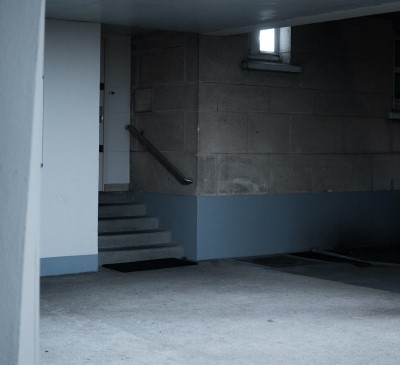
13) Relocate to a cooler spot
Try sleeping downstairs or in a basement.
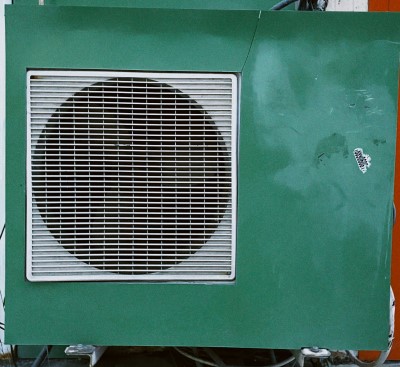
14) DIY homemade AC
Depending on how comfortable you are with home projects, you can make your own AC unit!
Some ideas:
How to Build a DIY Portable AC (CNET)
DIY: How to make a Swamp Cooler
Read:
How to Make a DIY Air Conditioner (The Spruce)
How to Make a DIY Air Conditioner with a Fan & Water Bottles (wikiHow)
Bedtime cooling remedies to help you get to sleep
Cooler room temperatures help your body’s natural sleep process. Studies suggest that a room temperature between 60 and 67 degrees Fahrenheit is optimal for sleeping with 65 degrees being the sweet spot.
Getting sleep in hot weather can be almost impossible on a bad night. Running a fan with ice and the various remedies I’ve already listed may help.
Other tricks you can add to the mix include:
Try a slimmer pillow
Instead of sweating it out with a fluffy head-engulfing pillow, switch to one that’s slimmer. You’ll get better cooling and ventilation around your head.
Freezing your bed sheets
Simple enough…
Switch to cooling sheets
Made from materials like cotton, bamboo, and linen, they’re engineered to help you stay cooler.
Try sleeping on the floor
I’ve already mentioned relocating to a basement. However, what if that’s not an option for you?
Sometimes, even sleeping on the floor can make a difference. For a more comfortable night, you can temporarily move your mattress to the floor.
Connect with us:
About Us
Better Sleep Simplified® was founded as a place for you to get clear and well-researched information.
Our goal is to make sure you know about your options so that you take action sooner rather than later.
Check us out on YouTube:
Watch and Learn
Helpful sleep tips, interesting sleep facts and statistics you want to know about
Affiliate Disclosure
This site is a participant in the Amazon Services LLC Associates Program and other affiliate advertising programs designed to provide a means for sites to earn advertising fees by advertising and linking to them.
Important: BetterSleepSimplified.com is for informational purposes only and is not intended or implied to be a substitute for professional medical advice, diagnosis, or treatment. Always consult a physician for sleep and health concerns. See additional information.



